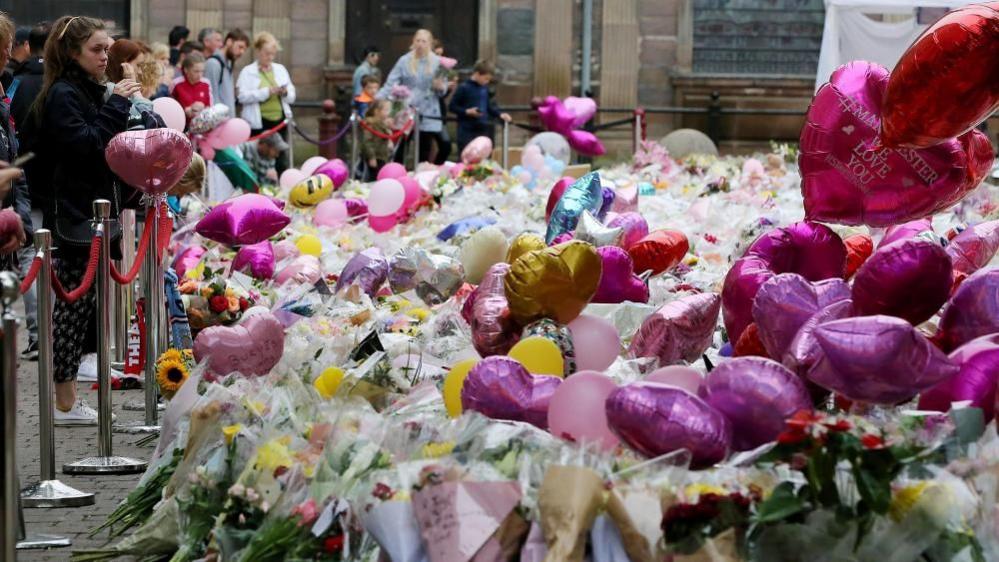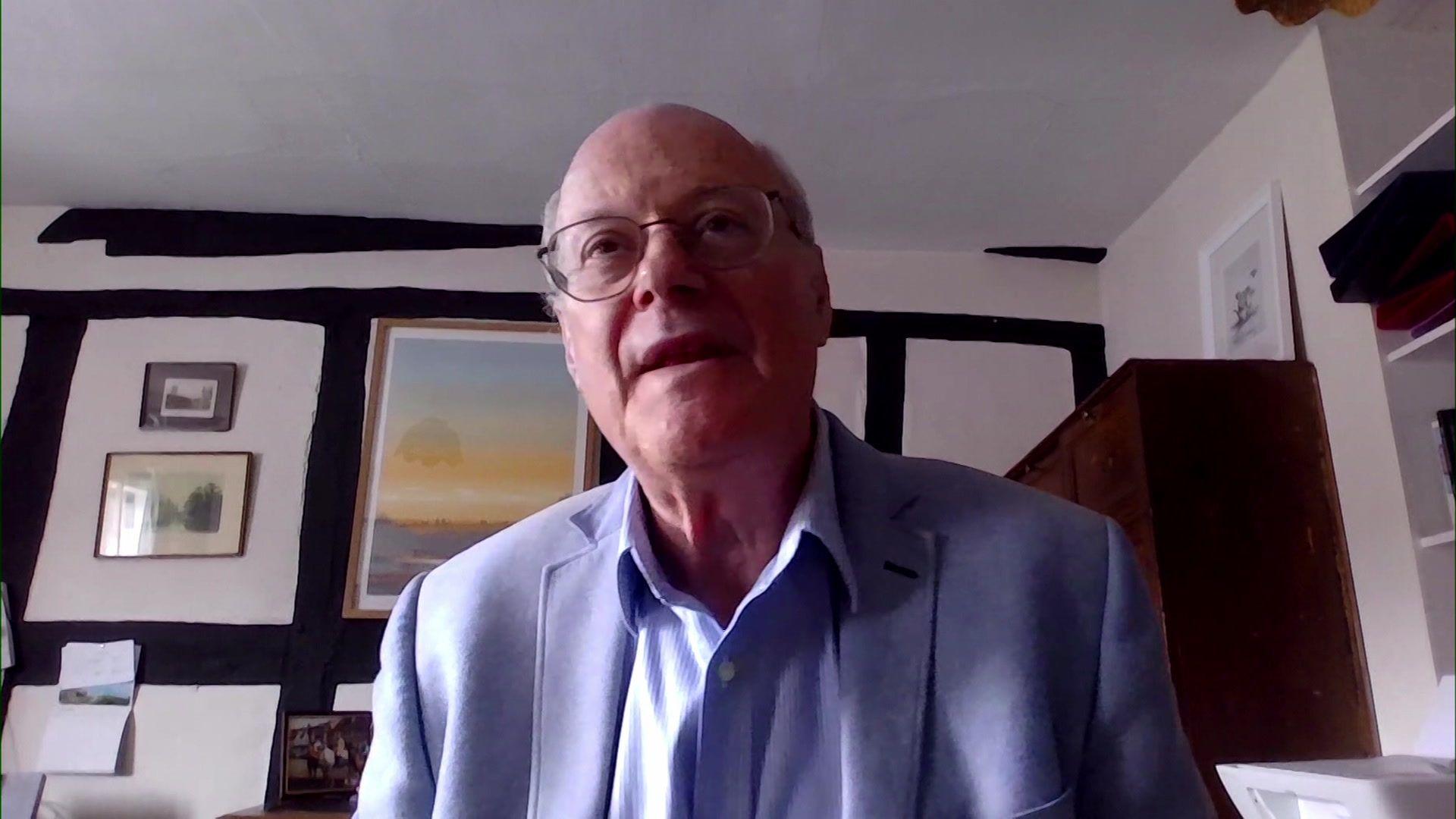Arena bomb inquiry was 'ground-breaking' - chairman

Twenty-two people died in the suicide bombing at the Manchester arena in 2017
- Published
The security services will act on all the recommendations that came out of the public inquiry into the Manchester Arena bombing, its chairman has said.
Sir John Saunders found chances to stop the attack - which killed 22 people and injured hundreds more on 22 May, 2017 - had been missed.
In a letter to families of those who died, Sir John said all but two of the recommendations of the inquiry had been implemented, and that "work is being undertaken that will ensure the [outstanding two] recommendations of the Inquiry will be met or surpassed".
He told BBC North West Tonight the inquiry had been "ground-breaking" in the way it was able to monitor that its recommendations were being followed.
Some of the changes suggested to MI5 and counter-terrorism police have had to be kept secret over national security concerns.

Sir John Saunders said he was hopeful the inquiry had meant there would not be a repeat of the failings prior to the bombing
The news follows meetings over the summer between Sir John, the inquiry's counsel Paul Greaney KC, members of the security services and police.
Sir John said: "As far as I know, no-one has monitored recommendations for the security service before, and to that extent [the Manchester Arena Inquiry] is ground-breaking.
"But it needs to be done."
The inquiry opened in September 2020 and heard its last evidence on 15 February 2022.
It called 291 witnesses and considered 172,000 pages of document, and its findings were made over three volumes.
In June 2021 the first volume highlighted "missed opportunities" to identify 22-year-old suicide bomber Salman Abedi as a threat before he walked across the arena's City Room foyer and detonated his device among crowds of people who had been attending an Ariana Grande concert.
The second volume, published in November 2022, delivered scathing criticism of the emergency services' response to the bombing.
And the final report, published in March 2023, found the attack might have been prevented if MI5 had acted on key intelligence received in the months before the bombing.
Regret
In March 2023, the head of MI5 said he was "profoundly sorry" the security service did not prevent the attack.
The apology came after Sir John's final volume found intelligence could have led to Abedi being followed to a car where he stored his explosives.
MI5 director-general Ken McCallum said he regretted that such intelligence was not obtained.
"Gathering covert intelligence is difficult," he said, "but had we managed to seize the slim chance we had, those impacted might not have experienced such appalling loss and trauma."
Sir John added: "You would never be confident something like this wouldn't happen again.
"But hopefully it would never happen in the same way.
"Hopefully the same failings won't happen as happened on that appalling night in Manchester in 2017."
Get in touch
Tell us which stories we should cover in Greater Manchester
Listen to the best of BBC Radio Manchester on Sounds and follow BBC Manchester on Facebook, external, X, external, and Instagram, external. You can also send story ideas via Whatsapp to 0808 100 2230.
Related topics
- Published2 March 2023
